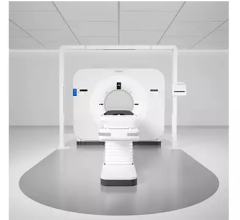
November 20, 2008 – In the most comprehensive correlative analysis of biomarker data for glioblastoma multiforme patients treated with an epidermal growth factor receptor (EGFR) inhibitor, RTOG investigators identified a subset of patients who had significantly shorter survival times when treated with the anti-EFGR therapy according to new research from the Radiation Therapy Oncology Group (RTOG) presented at the Society for Neuro-Oncology 13th Annual Meeting in Lake Las Vegas, NV.
“Although RTOG investigators did not find a survival advantage when they added gefitinib, an EGFR inhibitor, to standard radiotherapy for glioblastoma multiforme patients, we have identified a subset of patients that fare significantly worse,” said lead author Arnab Chakravarti, M.D., of Massachusetts General Hospital, MA. “We hope that an analysis of a larger panel of markers will identify subsets of patients who respond to EGFR therapy, but each result adds to our understanding of this disease.”
The initial analysis of RTOG 0211, a phase I/II trial of gefitinib given during and for 18 months after standard radiotherapy for glioblastoma multiforme (GBM) patients, showed that gefitinib was generally well tolerated but that survival times were not significantly improved compared to historical controls. A secondary analysis of study data is attempting to identify molecular subgroups of GBM patients that are likely to benefit from anti-EGFR therapies. Tissue microarrays generated from blocks prospectively collected on 74 of the 148 patients entered on RTOG 0211 were used to analyze the predictive values of 12 molecules integral to EGFR signaling. Using this molecular data, a multivariate risk model was developed using both clinical and molecular data that appears to identify distinct populations of GBM patients who may derive an overall survival benefit from the addition of Gefitinib to radiation in the upfront setting. This data strongly highlights activation of the phosphoinositol 3-kinase (PI3K) pathway at various junctions as a major resistance mechanism to gefitinib in GBMs. The results of this study may not only aid clinicians in selecting appropriate GBM patients for anti-EGFR therapies, but may also shed light into the basic mechanisms leading to treatment resistance in these most devastating tumors.
“RTOG biomarker investigations are providing new insights into the complex mechanisms of tumor growth and drug resistance,” said Walter J. Curran, Jr., the RTOG Group Chair, and the Lawrence W. Davis professor and chair of the Department of Radiation Oncology in the Emory School of Medicine and chief medical officer of the Emory Winship Cancer Institute. “The group’s repository of biospecimen material collected on thousands of brain tumor patients at hundreds of North American facilities is an invaluable resource for RTOG and the scientific community.”
For more information: www.rtog.org


 December 11, 2025
December 11, 2025 









